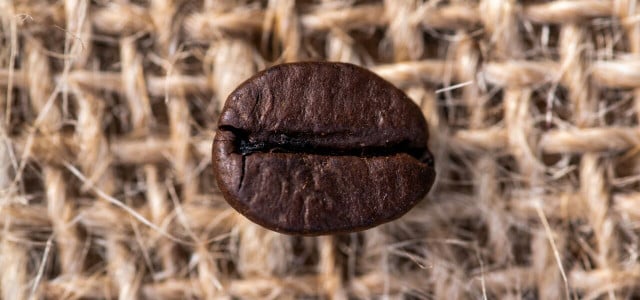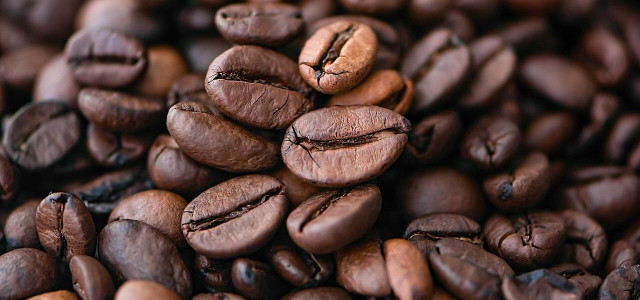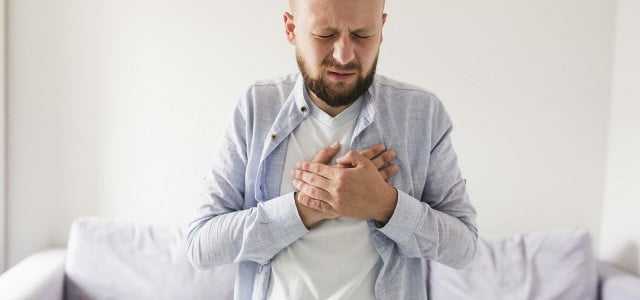Drinking coffee is one thing, but can you eat coffee beans? We'll take a look and discuss the benefits, drawbacks, and limitations of eating coffee beans.
Coffee beans are the fruit from the coffee plant, which are green and hard when picked from the plant. They are dried and roasted to make the brown coffee bean that we are familiar with and should be consumed this way as they will taste bitter if eaten raw. Many of us love a cup of coffee for a quick pick-me-up and consuming coffee beans can provide a faster caffeine fix, as coffee is diluted with water.
When buying coffee and coffee beans, look for organic brands to lessen your environmental impact. It’s also a good idea to buy fair trade coffee, to ensure farmworkers receive a fair wage — check out these 9 brands to start your day.
Can you eat coffee beans? You certainly can. Let’s take a closer look at how they will impact you.
Benefits of Eating Coffee Beans
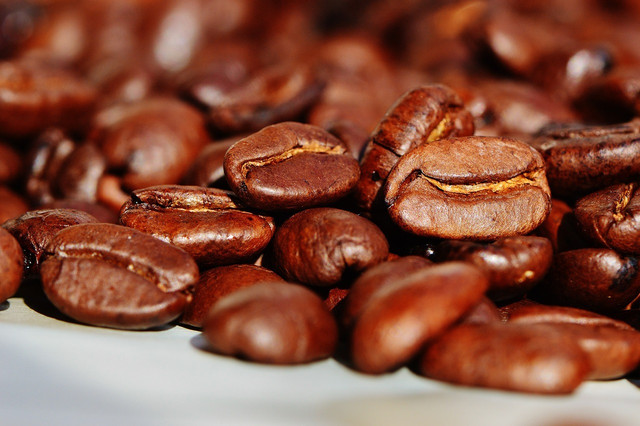
(Foto: CC0 / Pixabay / Alexas_Fotos)
Caffeine often gets a bad reputation, but there are multiple health benefits associated with eating coffee beans, including:
- Stimulation: As a natural stimulant, the caffeine in coffee beans can boost energy, mood, and alertness. Eating coffee beans instead of drinking coffee means the caffeine is absorbed by the body faster through the mouth, ideal for a quick caffeine fix.
- Antioxidants: Coffee beans are full of antioxidants like chlorogenic acid which can fight inflammation and reduce the risk of diabetes.
- Reduced cancer risk: Studies have shown that regularly consuming coffee can reduce the risk of getting certain types of cancer.
- Reduced risk of Alzheimer’s disease: Another study has shown that drinking coffee regularly can also reduce the risk of getting Alzheimer’s disease.
Drawbacks of Eating Coffee Beans
Drinking coffee is associated with certain downsides, and the same can be said for eating coffee beans. Some people may find they feel some negative effects when eating coffee beans, such as:
- Stomach upsets: Studies have found that coffee can cause diarrhea or have a laxative effect, therefore those with irritable bowel syndrome (IBS) should be careful with consuming coffee beans.
- Sleep problems: As mentioned above, the caffeine in coffee beans can provide an energy boost, however, this can cause sleep problems for some as caffeine remains in the system up to ten hours after initial consumption. This problem can be overcome by only eating a small number of coffee beans and limiting your intake to the morning only.
- Heartburn: The caffeine in coffee beans can increase stomach acid, which can lead to heartburn (or acid reflux). It may be wise for sufferers of heartburn to avoid eating coffee beans.
- Mental health problems: Consumption of coffee beans could lead to certain mental health issues such as anxiety, stress, and panic disorder.
Limits to Eating Coffee Beans
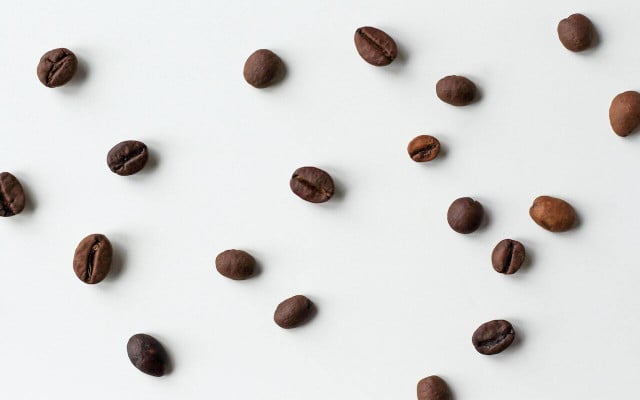


(Foto: CC0 Public Domain / Unsplash / NordWood Themes)
To decide how many coffee beans can be safely consumed, it’s important to know how much caffeine each bean contains. This varies according to
- the type of coffee,
- different sizes of beans and
- roasting techniques.
There are two main types of coffee beans, Robusta and Arabica — the caffeine content in Robusta coffee beans tends to be a bit higher. According to some calculations, there are roughly between 5 and 10 mg of caffeine in one coffee bean, other estimates are around 1 mg per bean.
Also interesting: What Is Specialty Coffee and Is It Really Sustainable?
It is recommended that adults limit consumption to between 200 mg and 400 mg of caffeine per day. So, 400 mg of caffeine divided by 12 mg of caffeine in coffee beans makes 33 coffee beans that can be safely eaten per day. If the beans are small and particularly low in caffeine, that number could theoretically go up quite a bit — but it’s always better to err on the side of caution!
However, remember that caffeine is also in other foods and drinks such as tea, soda, energy drinks, and chocolate, so consumption of these should be taken into account when eating coffee beans.
Espresso coffee beans can also be eaten, though their flavor is slightly different from regular coffee beans and the size is smaller. The caffeine content is the same as regular coffee beans, it’s the way that espresso coffee is made and brewed that makes the caffeine content per gram higher than regular brewed coffee.
3 Recipes to Try Out
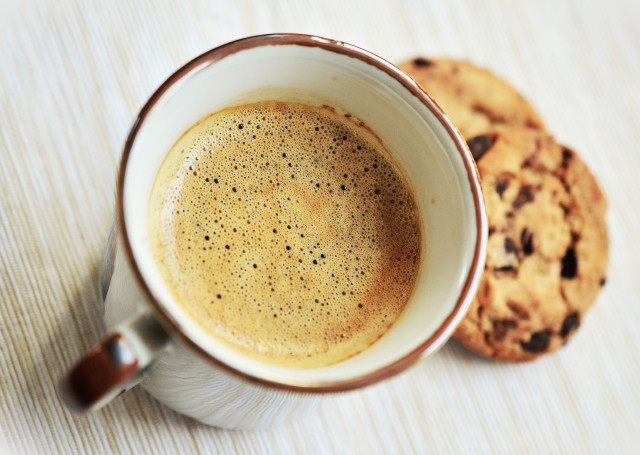


(Foto: CC0 / Pixabay / congerdesign)
If you don’t fancy munching directly on roasted coffee beans they can be used in baking, check out these recipes:
- Coffee Bean Bark: Simply melt some chocolate chips and coffee granules in the microwave, then spread the mixture on a baking tray. Allow to cool in the refrigerator, then melt some white chocolate chips in the microwave. Stir in some chopped coffee beans and then pour over the chilled chocolate. Refrigerate again and then break into pieces for a crunchy coffee treat!
- Chocolate-Covered Coffee Beans: Melt some chocolate in the microwave. Stir in the coffee beans, then scoop them out individually and place them on a cookie sheet. Allow to cool for two hours.
- Coffee Bean Cookies: Substitute the chocolate for chocolate-covered coffee beans in this low carb chocolate chip cookie recipe, bear in mind that the calorie content will alter.
Read more:
- How to Remove Coffee Stains Without Chemicals: Tips and Tricks
- 7 Sustainable Home and Garden Uses for Coffee Grounds
- Why You Shouldn’t Dump Coffee Grounds Down the Sink
Do you like this post?






